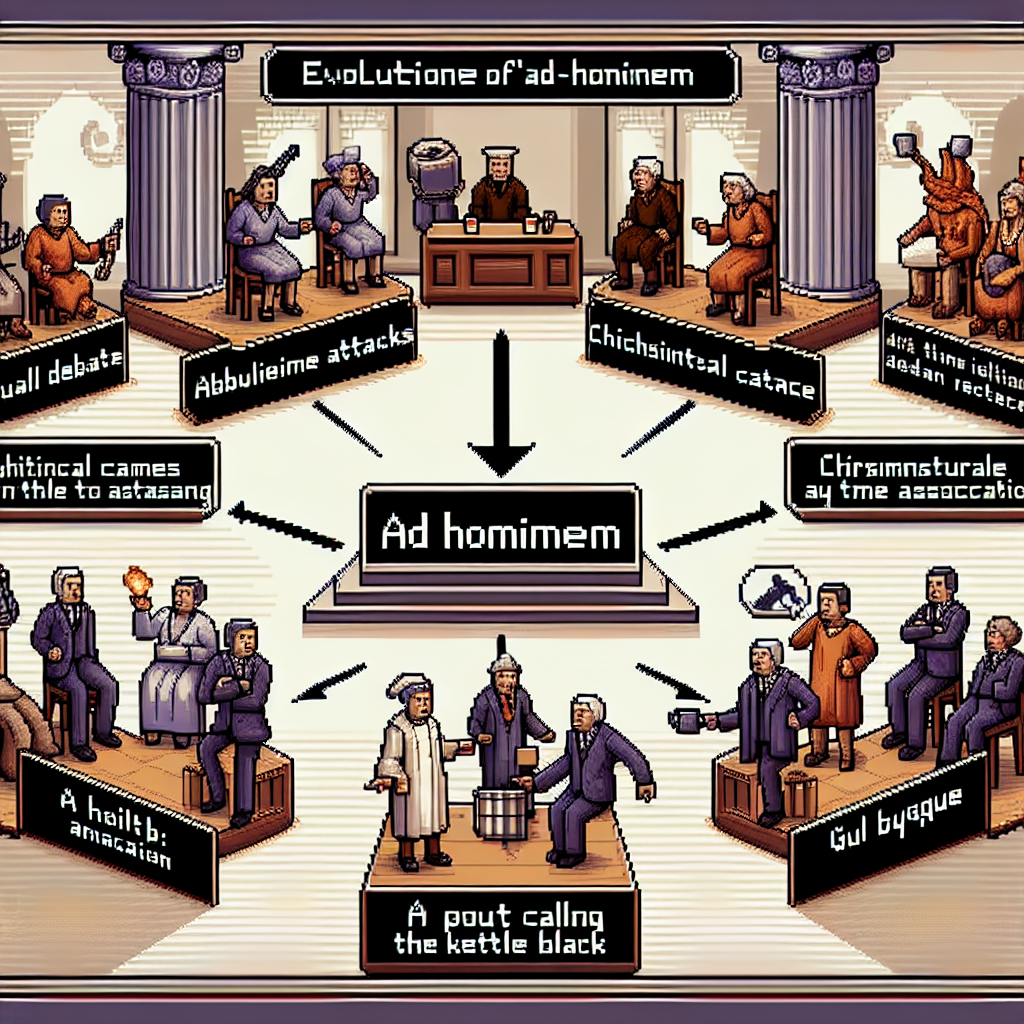Understanding Special Pleading in News
Definition of Special Pleading
Special Pleading is a logical fallacy where a person applies standards, principles, or rules to others while exempting themselves or others without providing a valid rationale. It often involves introducing an exception to a generally accepted rule.
Importance of Understanding Logical Fallacies in News
Understanding logical fallacies like Special Pleading is crucial because they can distort the truth. In the realm of news, fallacies may arise, misleading readers and compromising the quality of information delivered. Additionally, these errors can undermine the reader’s ability to critically assess articles, during an era where media consumption is vast and varied. Recognizing these fallacies ensures a more informed audience. Before accepting the information as fact, readers should question the presence of logical inconsistencies. Despite the challenges, fostering critical thinking in news consumption strengthens public perception and reinforces journalistic integrity.
Historical Context of Special Pleading
Origins and Early Examples
Special Pleading has been part of argumentative rhetoric for centuries. Initially, it was utilized in debates to create exceptions that favored one’s argument without proper justification. Because of its specific nature, special pleading often masked underlying biases or inconsistencies.
Evolution and Usage in Modern Journalism
Moving into the modern era, special pleading evolved significantly, adapting to the fast-paced world of news media. During this transformation, journalists began encountering the fallacy more frequently, particularly when pressured to present compelling stories. Despite the shift from traditional to digital platforms, which focused heavily on speed and sensational headlines, the core issue of special pleading persisted. Additionally, the rise of fragmented media landscapes allowed such fallacies to flourish in echo chambers, where biased narratives went unchallenged. As a result, understanding and identifying special pleading in contemporary journalism is critical for maintaining truth and integrity.
Identifying Special Pleading in News Articles
Common Characteristics and Red Flags
Special Pleading often manifests itself when news articles provide exceptions to rules without justification. Reporters may present emotionally charged arguments instead of objective facts. This creates a narrative favoring one perspective, despite contradicting evidence.
Case Studies and Real-World Examples
Many contemporary media pieces exhibit elements of special pleading. A frequent scenario is when articles about economic policies emphasize benefits while overlooking potential drawbacks. Special Pleading effectively sways public opinion, because it appeals to readers’ emotions instead of engaging in balanced analysis. Additionally, examining real-world examples helps readers recognize these techniques during their own news consumption. Awareness is crucial to safeguard against biased reporting before it alters perceptions. In the end, recognizing logical fallacies equips audiences with tools for critical evaluation and constructively discussing current events.
Impact of Special Pleading on Public Perception
Audience Trust and Credibility
The prevalence of Special Pleading in news articles can significantly erode audience trust and diminish the credibility of the media outlet. During times when public confidence in the media is already fragile, the use of logical fallacies further complicates the situation. As readers become aware of biased arguments, they may feel manipulated, leading to skepticism towards not only the specific article but also the entire publication. In addition to damaging trust, this fallacy causes the dissemination of skewed information, negatively influencing the audience’s perception of facts and events.
Consequences for Journalistic Integrity
Special Pleading undermines journalistic integrity, because it contrasts sharply with the principles of balanced reporting. Despite efforts to present fair journalism, the subtle use of these fallacies can distort narratives. Furthermore, such practices jeopardize the vital role that journalism plays in a democratic society, as they contribute to the spread of misinformation and misunderstanding among the public.
Strategies for Counteracting Special Pleading in News
Best Practices for Journalists
Journalists must adopt transparent methodologies to counteract Special Pleading in their reporting. This includes providing a balanced view by presenting multiple perspectives. Furthermore, they should conduct thorough fact-checking and avoid selectively presenting facts that bolster a single argument. During the editing process, journalists should critically evaluate content for any signs of bias or exclusion of relevant information because it could otherwise lead to Special Pleading. Staying informed of diverse opinions not only enhances credibility but also helps maintain the trust of the audience.
Educating the Audience on Critical Analysis
Additionally, educating the audience on critical analysis is crucial. Journalists can empower readers through engagement practices that encourage questioning and healthy skepticism. Offering resources and guidelines can help audiences understand the importance of looking for red flags in articles. As a result, this builds a more media-literate public, capable of distinguishing between well-informed news and biased reports.
Role of Media Literacy in Reducing Special Pleading
Importance of Media Literacy Education
Media literacy plays a crucial role in reducing Special Pleading, allowing audiences to recognize and resist fallacies. Because misinformation spreads easily, understanding these logical pitfalls is essential. Moreover, media literacy education equips individuals with the critical thinking skills necessary to discern reliable information from biased reports.
Tools and Resources for Enhanced Media Literacy
Educators must focus on tools that promote critical analysis skills. By providing access to fact-checking websites, analytical software, and interactive workshops, individuals are better prepared to evaluate news sources. Understanding the mechanics behind Special Pleading enables readers to question the rationale presented within persuasive articles. Additionally, fostering discussions about these topics before they proliferate further in digital spaces can significantly alleviate their impact. Therefore, robust media literacy programs remain indispensable for maintaining the integrity and trustworthiness of journalism.
Special Pleading in Modern News: A Case Study
Background of the Case
In a recent news article regarding climate change policy, the journalist exhibited Special Pleading by emphasizing the economic benefits of delaying carbon emission regulations while downplaying the environmental consequences. The article focused disproportionately on businesses’ challenges, neglecting the broader ecological impact.
Impact on Audience Perception
Because the article presented a lopsided view, readers were led to believe that postponing environmental regulations was more beneficial overall. This skewed representation undermined the trust and credibility of the news source, as informed readers identified the imbalance. Additionally, the failure to present a comprehensive view diminished the audience’s understanding of the complex issue.
Solution and Best Practices
To address similar issues of Special Pleading, journalists should incorporate diverse perspectives and ensure that all relevant aspects of a story are represented. By adopting a balanced approach, they can maintain journalistic integrity and enhance public trust. Furthermore, educating the audience on critical analysis and media literacy can empower readers to identify and question biased reporting.


